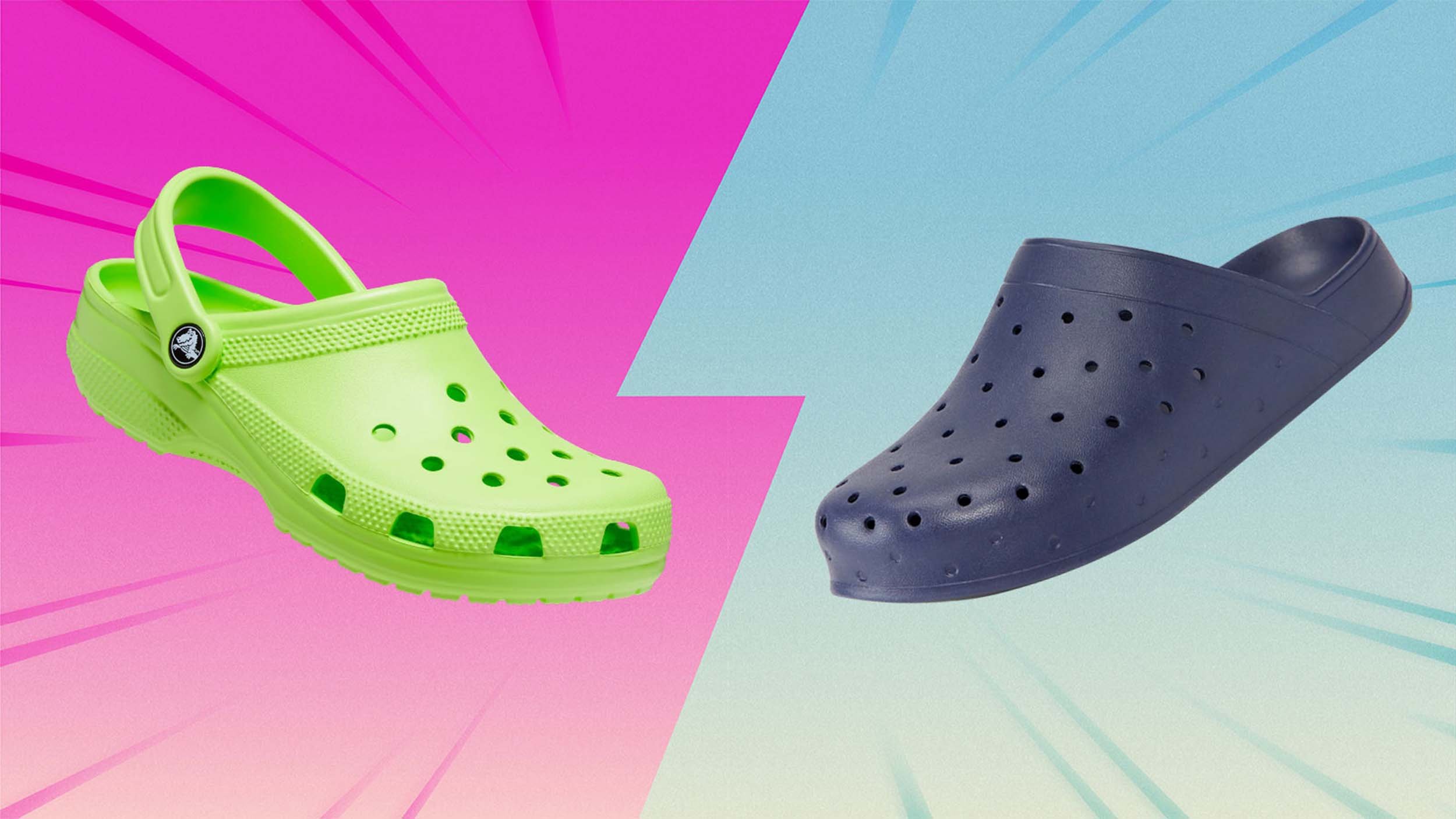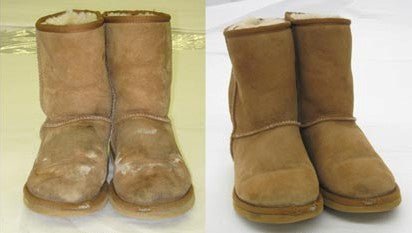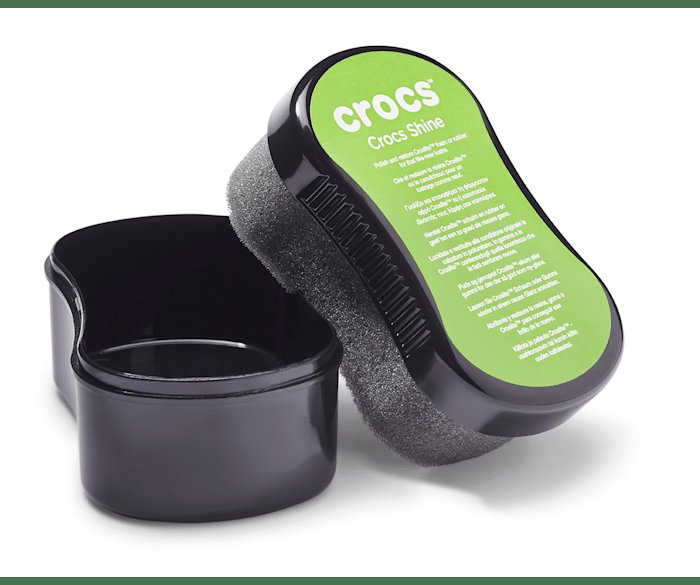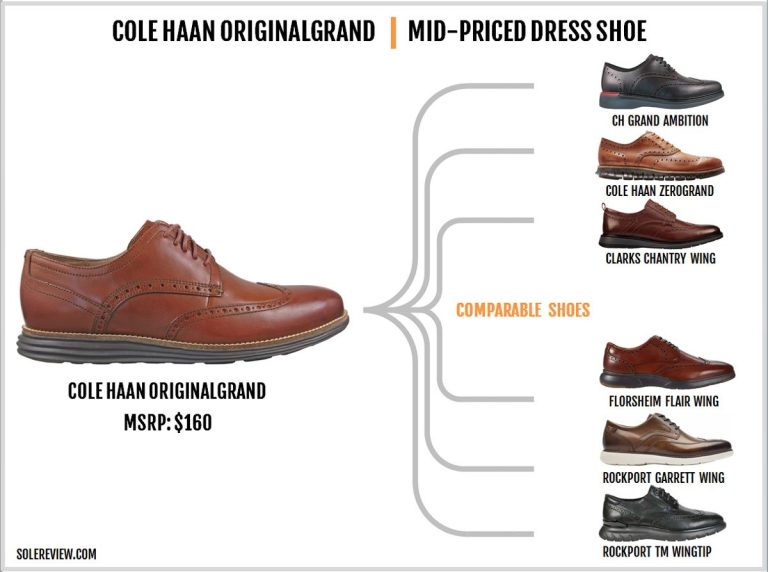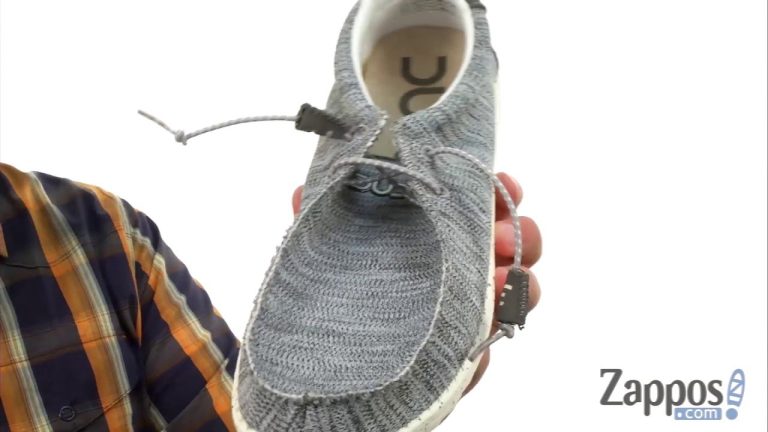Crocs vs clogs, which is the better choice? Many people find themselves pondering this question when it comes to selecting footwear that combines comfort, style, and functionality. Well, the answer is not so simple, as both Crocs and clogs have their own unique features and advantages. In this article, we will dive into the world of these two popular shoe styles, exploring their characteristics and helping you make an informed decision. So, let’s begin our journey of unraveling the pros and cons of Crocs vs clogs!
Crocs vs Clogs: A Detailed Comparison
When it comes to comfortable and practical footwear, two popular options that often come to mind are Crocs and clogs. Both of these types of shoes offer unique features and benefits, making them a popular choice for many individuals. In this article, we will explore the similarities and differences between Crocs and clogs, helping you make an informed decision when it comes to choosing the perfect pair of shoes for your needs.
Crocs – The Iconic Comfort
1. History and Overview
Crocs, the iconic foam clogs, were first introduced in 2002 by a company named Crocs Inc. Initially designed as comfortable boating shoes, Crocs quickly gained popularity due to their unique design and comfort. They are made from a proprietary foam material called Croslite, which provides cushioning and molds to the shape of the wearer’s feet. With a wide range of colors and styles, Crocs have become a fashion statement for people of all ages.
2. Key Features
Crocs are known for their distinctive design and comfort. Here are some key features that set Crocs apart:
– Lightweight: Crocs are extremely lightweight, making them easy to wear for extended periods.
– Cushioning: The Croslite foam material provides excellent cushioning, relieving stress on the feet and joints.
– Slip-resistant: Crocs are designed with slip-resistant soles, providing enhanced safety on various surfaces.
– Ventilation holes: Many Crocs styles feature ventilation holes, allowing air circulation and preventing sweat and odor buildup.
– Wide range of styles: From classic clogs to sandals, sneakers, and even high heels, Crocs offers a wide range of styles to suit different preferences.
3. Pros and Cons of Crocs
Like any footwear, Crocs have their advantages and disadvantages. Here’s a closer look at both:
Pros:
– Unparalleled comfort: The cushioning and lightweight design of Crocs make them incredibly comfortable for everyday wear.
– Easy to clean: Crocs are water-resistant and can be easily cleaned with soap and water.
– Versatile: With a variety of styles available, Crocs can be worn for various activities and occasions.
– Customizable: Many Crocs styles come with removable charms, allowing wearers to personalize their shoes.
Cons:
– Limited durability: While Crocs are known for their comfort, they may not be as durable as some other types of shoes.
– Limited arch support: Crocs may not provide enough arch support for individuals with certain foot conditions.
– Style preference: The unique design of Crocs may not appeal to everyone, as it is a matter of personal taste.
Clogs – The Classic Staple
1. History and Overview
Clogs have a long-standing history and are considered a classic staple in footwear. Traditional clogs have been worn for centuries, especially in European countries. They are known for their sturdy construction, wooden soles, and typically come with a closed toe design. Today, clogs are available in various materials such as leather, rubber, and synthetic materials, making them versatile and suitable for different purposes.
2. Key Features
Clogs offer their own set of features that make them a sought-after choice. Here are some key features of clogs:
– Durability: Clogs are often known for their robust construction, providing long-lasting durability.
– Supportive footbeds: Many clogs are designed with supportive footbeds that promote proper alignment and comfort.
– Breathability: Clogs made from breathable materials like leather allow air circulation, preventing excessive sweat and odor.
– Slip-on convenience: Clogs are easy to slip on and off, making them a convenient choice for those who value effortless footwear.
3. Pros and Cons of Clogs
Let’s dive into the advantages and disadvantages of clogs:
Pros:
– Durability: Clogs are typically made from sturdy materials and are built to last, making them a great investment.
– Arch support: Clogs often provide better arch support compared to Crocs, making them suitable for individuals with specific foot conditions.
– Classic style: Clogs have a timeless appeal and can be paired with a variety of outfits to create a fashionable look.
– Breathability: Many clogs have open backs or are made with breathable materials, allowing for ventilation and preventing sweat buildup.
Cons:
– Weight: Traditional wooden-soled clogs can be heavier than Crocs, which may not suit everyone’s preference.
– Less cushioning: Clogs may not provide the same level of cushioning as Crocs, potentially leading to less immediate comfort.
– Style limitations: While clogs have evolved in terms of style, they may not offer the same variety as Crocs in terms of colors and designs.
Crocs vs. Clogs: Choosing the Right Fit
1. Comfort
Comfort is a significant factor when selecting footwear. While both Crocs and clogs offer comfort, they cater to different needs. Crocs prioritize immediate comfort with their foam cushioning and lightweight design, making them an excellent choice for those seeking maximum comfort throughout the day. On the other hand, clogs provide sturdy support and are suitable for individuals who require more arch support or have specific foot conditions.
2. Style and Versatility
When it comes to style and versatility, Crocs offer a wider range of options. From classic clogs to sandals, sneakers, and even high heels, Crocs have expanded their offerings to cater to different tastes and occasions. On the other hand, clogs have a more traditional and classic appeal, which can be paired with various outfits for a timeless look.
3. Durability
Durability is an important consideration, especially if you’re looking for long-lasting footwear. While Crocs are known for their comfort, they may not be as durable as clogs. Clogs are often made from sturdy materials like leather or rubber, offering better durability and longevity.
4. Price
Price is always a factor to consider when purchasing footwear. Crocs are generally more affordable compared to high-quality clogs, which may be pricier due to their construction materials and durability. It’s essential to evaluate your budget and prioritize your desired features when making a decision.
5. Purpose and Lifestyle
Your lifestyle and intended purpose for the shoes play a crucial role in deciding between Crocs and clogs. If you need shoes for casual everyday wear, gardening, or water activities, Crocs may be the better choice due to their lightweight and easy-to-clean nature. On the other hand, if you require shoes for work or have specific foot conditions or arch support needs, clogs might be the more suitable option.
In the battle of Crocs vs. clogs, there is no clear winner as both offer unique benefits. Crocs are synonymous with comfort, versatility, and a wide range of styles, making them a popular choice for casual wear. Clogs, on the other hand, are known for their durability, arch support, and classic appeal. Consider your personal preferences, comfort needs, and lifestyle requirements to make an informed decision between these two fantastic footwear options.
In the end, the perfect choice comes down to what you prioritize most: immediate comfort and style versatility (Crocs) or durability and arch support (clogs). Whichever option you choose, both Crocs and clogs are here to provide you with comfortable and functional footwear.
difference between crocs classic platform & classic crush clogs 👡 [on feet / height comparison]
Frequently Asked Questions
What are the main differences between crocs and clogs?
Crocs and clogs are both popular types of footwear, but there are some key differences between them. Crocs are made of a lightweight and durable foam material, usually featuring distinctive ventilation holes and a slip-on design. Clogs, on the other hand, are typically wooden-soled shoes with a closed toe and an open back. They often have a traditional or rustic appearance. While both crocs and clogs offer comfort and support, their design, materials, and styles set them apart.
Which one is more suitable for outdoor activities, crocs or clogs?
Crocs are generally considered more suitable for outdoor activities. Their lightweight construction and slip-resistant soles make them great for beach trips, gardening, or any activity that requires being in or around water. Crocs are also designed with ventilation holes that allow air circulation and help keep the feet cool and dry. Clogs, with their wooden soles, may not be as well-suited for outdoor activities, especially in wet or rugged terrains.
Can crocs or clogs be worn for formal occasions?
Clogs and crocs are generally regarded as casual footwear and may not be the best choice for formal occasions. However, crocs nowadays offer various styles and designs, including dressier options, with more traditional shapes and even heels. These crocs can be considered more suitable for semi-formal events or occasions where comfort is a priority. Clogs, while they can sometimes have a more polished appearance, are still primarily associated with casual or work settings.
Are crocs or clogs better for people who spend long hours on their feet?
Both crocs and clogs can offer comfort for individuals who spend long hours on their feet, but crocs are generally favored in this regard. Crocs are known for their cushioned soles, which provide support and shock absorption, helping to reduce foot fatigue. Additionally, the lightweight material of crocs makes them more comfortable for extended wear. Clogs, although they often have supportive features, may not provide the same level of cushioning as crocs.
Can crocs or clogs be worn in the winter?
While neither crocs nor clogs are specifically designed for winter wear, crocs tend to be more suitable for colder temperatures. Crocs offer several styles that come with a fuzzy lining or are made from warmer materials, providing some insulation for the feet. However, it is important to note that both crocs and clogs are open-back shoes, which means they may not provide adequate protection against the cold or wet conditions typically encountered in winter.
Which is more versatile, crocs or clogs?
Crocs are generally considered more versatile than clogs due to their wide range of styles and design options. Crocs offer various colors, patterns, and even customizable accessories that allow individuals to express their personal style. Crocs can be worn for a wide range of activities, from casual outings to outdoor adventures. While clogs also offer different styles, they are often associated with specific cultural or work-related contexts, limiting their versatility in comparison.
Final Thoughts
In conclusion, when comparing Crocs and clogs, it is clear that both types of footwear have their own unique features and benefits. Crocs offer versatility, comfort, and a wide range of styles, making them popular for casual everyday wear. On the other hand, clogs provide excellent support and are often preferred in work settings or for those with specific foot conditions. Ultimately, the choice between Crocs and clogs depends on personal preference, style, and intended use. So whether you prefer the distinct design and functionality of Crocs or the durability and support of clogs, both options have their merits.
